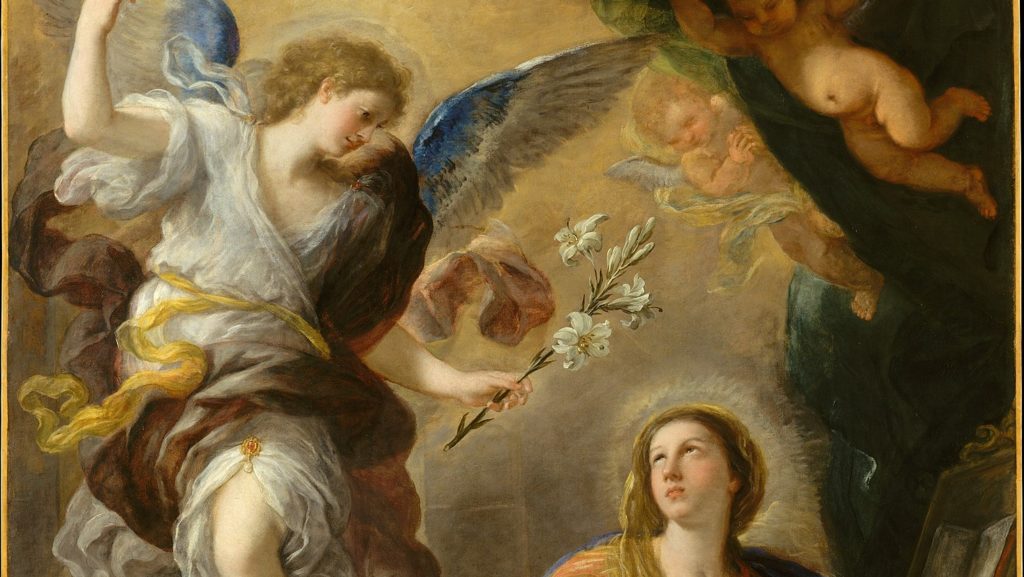In my evangelical days, I often complained that Catholics exaggerated the role of the Blessed Virgin.
But it is history itself — salvation history — that has given her an outsized role. It is the Lord of history who cast her for such a part in the drama.
Her lines in St. Luke’s Gospel add up to far more than a cameo appearance. The story of redemption turns on her brief dialogue with the angel. Heaven awaits her response. The Church has ever since echoed her prayer, the Magnificat, especially in Advent.
“My soul magnifies the Lord,
and my spirit rejoices in God my Savior,
for he has regarded the low estate of his handmaiden.
For behold, henceforth all generations will call me blessed;
for he who is mighty has done great things for me,
and holy is his name. …”
Go and read the whole thing right now (Luke 1:46–55).
Mary of Nazareth gave us the model prayer of praise and thanksgiving. It is a model prayer for our coming Christmas. She taught the world the proper response to God who has made his dwelling among humankind — who has come to dwell in her flesh and in ours.
St. Luke presents the Virgin Mary as an icon of human freedom and dignity. There is nothing obsequious about her. She is “troubled” by the angel’s presence, but she still dares to inquire. Hers is an active and intelligent obedience.
Tradition honors Mary as the “Virgin of Tenderness,” and she is tender. Yet the lines of the Magnificat also show us a fierceness of fidelity. It is a quality God cultivated in Israel, a quality that enabled a faithful remnant to keep faith in spite of exile and oppression.
All of Mary’s qualities are graces from God. In her we see grace in an extraordinary degree because of the way God prepared her for her unique vocation.
But Catholic theology insists that grace builds upon nature. The God who created us is the same God who redeemed us and calls us. And so it is not at all fanciful for us to see Mary’s Magnificat as a window into her upbringing. Her ancestor King David was a shepherd of sheep before he became a shepherd of Israel. Mary’s fidelity, her knowledge of the history of Israel, her faithfulness to the Law of Moses, her reverence for the Temple, her habits of prayer, praise, and gratitude — all of these are a tribute to her family of origin and a childhood spent in the courts of the Lord.
Though her speaking role diminishes after Jesus’ childhood, she still looms large in the Gospel. She remains with him, and that seems perfectly in character. The young woman who would dare to question an angel would become the sort of older woman who could spend years following a son who had “nowhere to lay his head” (Matthew 8:20).
That is the tenderness and the tenacity God created, saw, and loved in Israel, his bride and daughter and firstborn. Those are characteristics that God gives as a grace and loves in his earthly family, beginning with his mother.

